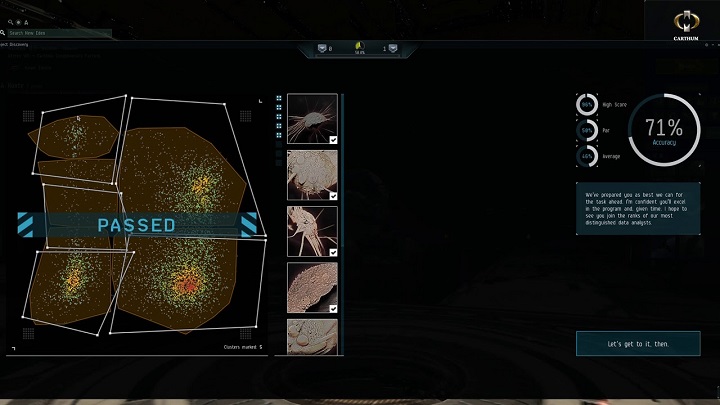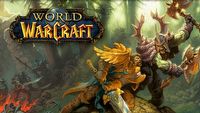EVE Online Saved Scientists 330 Years of Research
The third phase of Project Discovery in EVE Online is in full swing. As part of the action, the players have completed enough science-based tasks to spare the professionals over 330 years of coronavirus research.

EVE Online may be known primarily for its huge battles and equally huge monuments, but that's not the only reason why the game, celebrating its 18th birthday this year, enjoys great fame. The title also gained recognition thanks to Project Discovery or, to be more precise, the third edition of this initiative. EVE Online has been nominated to the 25th edition of The Webby Awards in the category of "public service, activism and social impact" for help in the fight against the coronavirus.
How does playing an MMORPG support scientists in the fight against COVID 19? Here's how - as part of Project Discovery, players take part in special mini-games based on scientific data and thus help analyze it. The third edition (launched in June 2021) boils down to outlining groups of cells depicted according to information gathered by flow cytometry. Studio CCP Games initially made around 707,000 such tasks available, and solving them brings scientists closer to understanding the impact of coronavirus on the human immune system.
Of course, making the tasks available is one thing, but ultimately it all comes down to completing them. That, however, proved to be no problem at all. IGN reports that more than 327 thousand EVE Online players have completed a number of quests in the third phase of Project Discovery corresponding to more than 330 years of scientific research. That's a significant improvement over the already impressive November 2020 result, when virtual pilots saved professionals 36 years of work.

This isn't the only initiative of this kind. Gamers are also helping scientists as part of the educational game Foldit, which for over a year has included tasks involving the neutralization of the "crown", to which the virus owes its name. Many Internet users have also contributed to the "largest supercomputer on Earth" in the Folding@Home project.
0

Author: Jacob Blazewicz
Graduated with a master's degree in Polish Studies from the University of Warsaw with a thesis dedicated to this very subject. Started his adventure with gamepressure.com in 2015, writing in the Newsroom and later also in the film and technology sections (also contributed to the Encyclopedia). Interested in video games (and not only video games) for years. He began with platform games and, to this day, remains a big fan of them (including Metroidvania). Also shows interest in card games (including paper), fighting games, soulslikes, and basically everything about games as such. Marvels at pixelated characters from games dating back to the time of the Game Boy (if not older).
Latest News
- „They get more hate than they deserve.” Josef Fares comes to EA's defense and points the finger at Sony and Nintendo
- They used to ban them, now they make money on them. Rockstar opens Cfx Marketplace with paid and free mods
- „I don't get you guys”. New Tower mode in Diablo 4 divides players
- Euphoria didn't last long. „New” footprint of Prince of Persia: Sands of Time Remake turned out to be a painful return to the past
- „It's crazy that 50% of you are lying.” GTA 6 fans faced a tough choice: half would do it without hesitation


